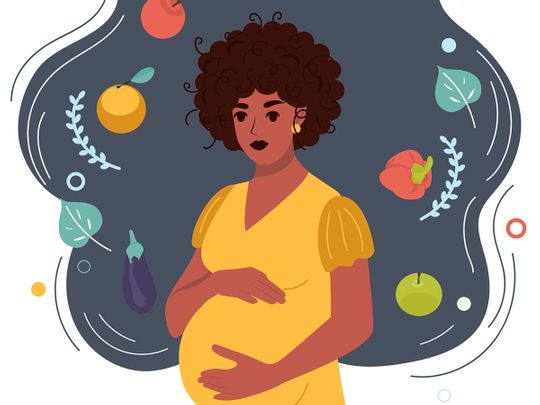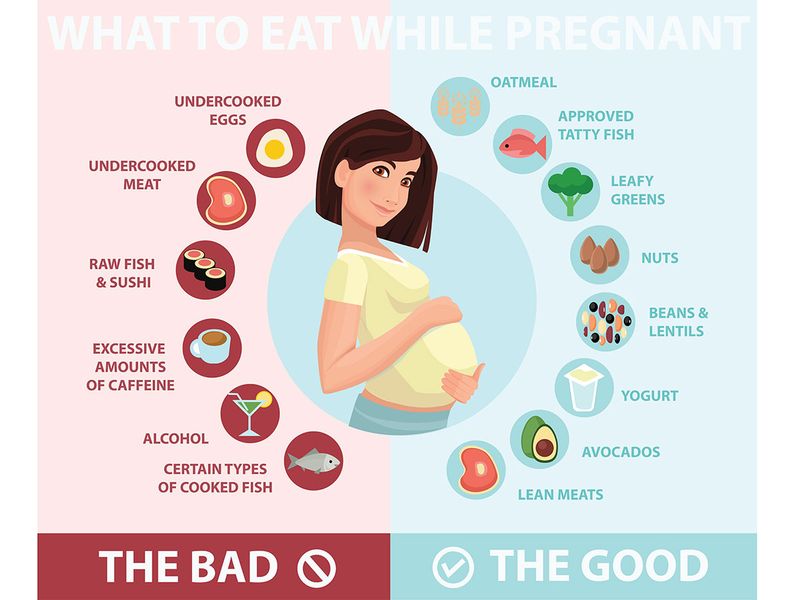
What you ingest now has never been as important as it is now that you are pregnant. A bad diet can affect the development of the baby growing in your womb – diets low on nutrients such as iodine, iron, folate, calcium and zinc, says United Nations Children's Fund (Unicef), can lead to stillbirth, low birthweight, wasting and developmental delays for children. And studies show the echoes of nutritional dips can be heard through the years.
Studies now point to a mum’s pregnancy health also affecting a child’s predisposition to asthma and even allergies. A study funded by the US-based National Institute of Allergy and Infectious Diseases in 2016 found that the micro bacterial communities in an infant can increase their risk of developing asthma and childhood allergies. This gut population grows while still in the womb, affected by the mum’s diet.
The good news is, while some of the conditions are genetic, others may be avoided with attention to the plate. Dr Farida Pithawala, Specialist Obstetrics and Gynaecologist with Prime Medical Centre, says: “The maternal diet during pregnancy is thought to be one of the most influential factors on child health and development. Pregnant women should consume a balanced diet.
“There is rise in obesity among women in antenatal care. early nutrition research among others have reported independent association of maternal obesity, excessive weight gain as well as diet in pregnancy with childhood obesity and cardiovascular risks indicators. The focus should be on eating a healthy diet with food rich in critical nutrients rather than eating more. The concept of ‘eating for two’ is wrong.”
So what should you be eating?
Dr Pithawala calls for a balance of macros – proteins, carbohydrates and fats – to ensure good foetal health. She suggests mums-in-gestation mode eat a plan rich in:
- Dairy products such as milk, cheese and yogurt
- Legumes
- Sweet potatoes
- Salmon
- Eggs
- Broccoli
- Leafy greens
- Lean meat
- Berries
- Whole grains
- Avocados
- Dried fruits
What about supplements? What should a pregnant woman eat and in what general quantities?
“Supplements are not an absolute necessity in pregnancy, and they should not be replacing the balanced nutritious diet,” says Dr Pithawala. “Pregnancy is a high demand metabolic state. Folic acid at least should be started as early as preconception. Dietary supplementation with iron, vitamin D, vitamin B12, vitamin A and iodine may be indicated in women at risk of poor supply of these micronutrients.

“The American College of obstetricians and Gynaecologist recommend pregnant women take a prenatal vitamin and folic acid supplement. This is advised to fill the nutritional gaps and prevent development abnormalities at birth. The doses are:
- Folic acid: 600 micrograms (mcg) per day,
- Iron 27 milligrams (mg) per day,
- Vitamin D 600 IU or 15mcg per day (for which prior screening is must).”
A study published in ‘European Respiratory Journal’ suggests a dip in the mum’s Vitamin D and E levels may cause asthma in baby later in life. Why would this be?
Dr Pithawala explains that the past few decades have seen rise in allergies, and it has been hypothesized that the increase in prevalence may have its roots in uterus. “Recently, low maternal levels of vitamin D have moved to the forefront as a potential causal agent. The immune modulatory role of vitamin D has been described since asthma is presented with high incidence in childhood and neonatal vitamin D depends on maternal vitamin levels. A possible programming effect of maternal vitamin D status during gestation was suggested. Observational and longitudinal studies on this subject led to inconclusive results with glimmer of positivity. Further research is called for,” she adds.
Dr Mohamed Rafique, Medical Director and Specialist Pulmonologist at Prime Medical Centre, explains that vitamin D acts by reducing down inflammation and by boosting immunity to infections. And in fact, he explains, “People with mild or moderate asthma who corrected their low vitamin D levels in addition to regular asthma medicines and inhalation therapies had fewer attacks and a reduction in hospital treatments than those who went without.”
Can the way a baby is born – via C-section or vaginally – also impact a child’s response to allergens?
Yes. “Babies born by C-section have an increased chance of developing allergies as there are interruptions to maternal microbiome transmissions,” says Dr Rafique. When this transfer is compromised, it may negatively influence immunological impairment and food allergies.
Write to us about your parenting concerns on parenting@gulfnews.com








